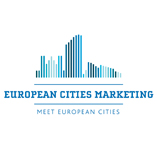Research Methodologies – How do I research my visitors?

When we discuss researching our visitors, there is usually a lengthy debate on the methodology to use: online according to some, face-to-face for others and some even consider doing it on paper or by phone.
\n
\n
Now, which is the best method?
\n
Actually each methodology has its advantages: the cost for online, the control for face-to-face, the length of the questionnaire for postal…
\n
So, which one to use?
\n
To select the most appropriate method, you need to take into account three elements: the objectives of the survey, the target group and the budget.
\n
Firstly, the objectives of the research are very important in determining the most appropriate methodology: satisfaction surveys are better done online or on paper (people tend to be more positive when answering face-to-face); questions related to the tasting of a product or to a specific experience (sightseeing, an exhibition…) are better suited to a face-to-face interview at the time. The target group also influences the choice of methodology: if the target group is people who have visited a particular museum, you will probably choose to conduct your research face-to-face at the museum. Finally cost is an important driver too: researching online is very cheap (sending emails is virtually free) while sending professional interviewers onto the streets looking for the right target group is much more expensive.
\n
When the ECM Research & Statistics Group discussed this topic in Biarritz, it was indeed clear that there was no perfect way to research, with a variety of methods used by the cities, with face-to-face and online being the most common. Each city also shared learnings and success factors for their researching of their visitors: some are mentioned hereunder but experience also tells us that cost cannot be overestimated, when you take into account the online research addressing the quality of the questionnaire as well as its translation, its testing and the – hidden – cost of collecting the email addresses at point of contact of the visitors (hotels, attractions, tourist offices, online…). Finally, some cities have started online panels – a group of people you survey regularly on interesting topics – and have found that the management of the panel is critical to ensuring that the panel works efficiently for your needs.
\n
Finally, while the majority of time and discussions of a research project are given over to the debate over methodology, the success of a research project depends much more on other aspects, including:
\n
- \n
- A clear definition of the objectives for the project: which questions do we want to answer with this survey?
- What is our target group: whom do we want to interview, how will we select a reliable sample?
- The quality of questionnaire: does it answer the objectives of the survey? Are the questions understandable, even in foreign languages? Do they avoid being misleading?
- The quality of the interviewers: Do they understand the objectives and the sampling? Are they unbiased in the selection of respondents? Do they speak foreign languages accurately and fluently? Are they objective in their questioning? Are they correctly recording the answers given?
- The analysis: Is it fully objective, not biased by the opinion of the researcher? Does it answer the objectives? Is it statistically correct?
\n
\n
\n
\n
\n
\n
To conclude, researching visitors is not a simple task, but one that requires experience and method to ensure that the survey is efficient and that it delivers results that are not only correct but useful… And these are all things that your R&S team can help you with.
\n
Frédéric Cornet
Manager Research & Development, VisitBrussels
Group member, Research & Statistics Knowledge Group
F.Cornet@visitbrussels.be
\n
\n
\n
\n